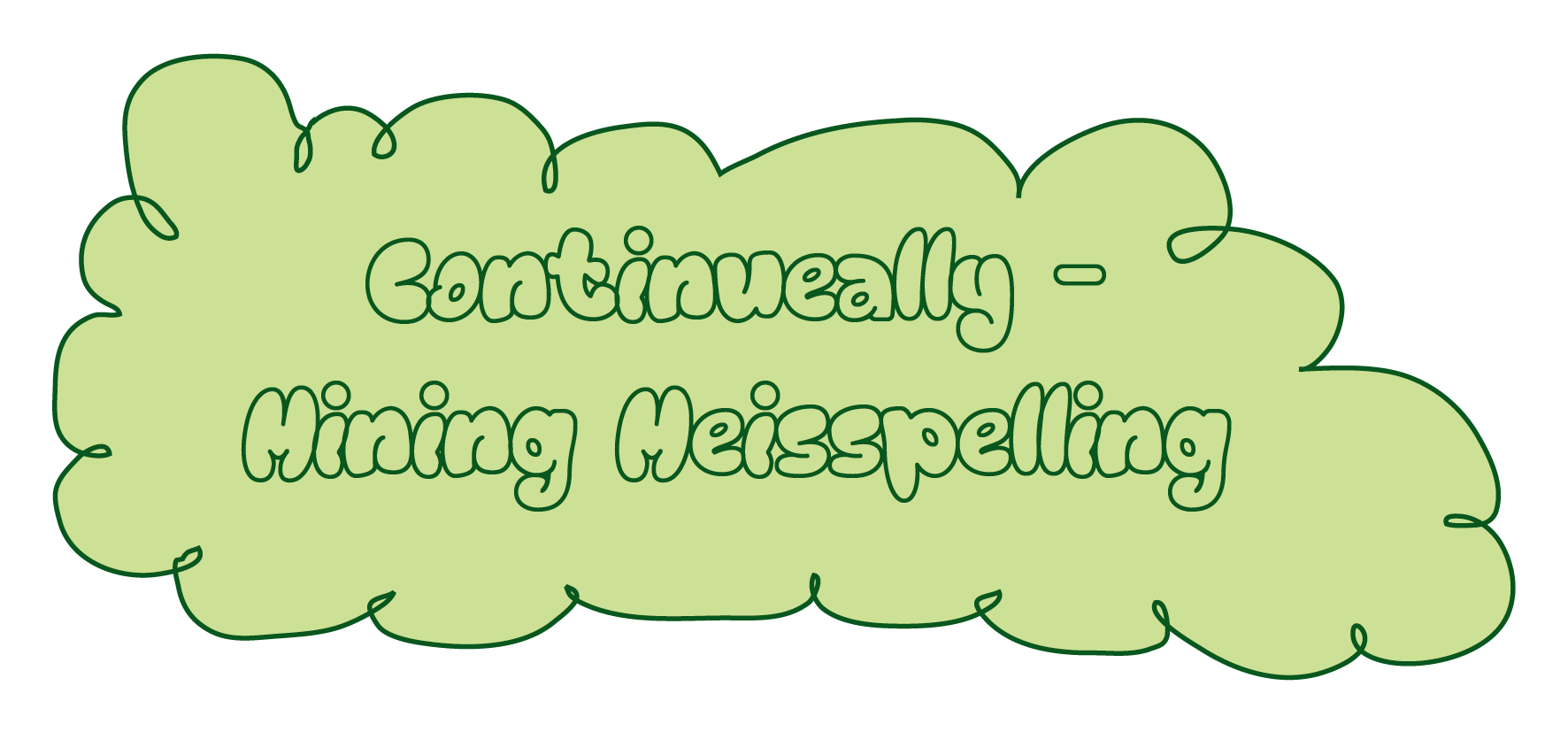Created by
Ren Loren Britton
Teach your computer how to misspell on purpose as a small act of refusal and as a way to create an opening into the constrictive logics of producing everything as ‘correct’. Be uncorrect, meisspell.
With the further development of AI tools; standardised language has become so ubiquitous that misspellings are rendered impossible.
Following in the long line of standardisation linked in colonial timelines and the subsequent production of a white supremacist world view, the stadnardisation of the normative spelling of words in the English language is encoded into whichever dictionary (ie: data set) is set as ‘default’ on our/my/your computers. The stadnardisation of the English language, and the foreclosure of other ways of speaking and expressing, becomes rendered as a ‘non-issue’ as Spell Check removes and ‘corrects’ variation from spellings across interfaces. Mining Meisspelling is an artwork that flips this paradigm by centering a dyslexic norm of spelling—which is to say a non-standard English—by working to depathologise difference from ableist white supremacy. As Allison Parrish writes in Desire (under)lines: Notes toward a queer phenomenology of spell check: “In a sense, to “correct” misspellings is to “straighten” the queer.” Mining Meisspelling celebrates neurodiversity and moves with invented, vernacular, and community specific modes of articulation, computational spelling, and speaking. When centering a dyslexic way of writing on the computer, misspelled words challenge colonial dominances and become a way to seek out magic and invention in everyday “mistakes”. In Ren Loren Britton’s work, a simple and colloquial AI tool, spell check, becomes engaged as a program that serves to break routine colonial correction and open up practices of possibility making and disability justice informed refusal.
About the artist
Ren Loren Britton is a trans*disciplinary artist-designer who reverberates with trans*feminism, technosciences, radical pedagogy and disability justice.
Link
Exercise
- For this exercise, start writing on your computer in a stream of consciousness mode. Write until you misspell a word. Write in English—a colonial language whose dominance must be unmade. Write about how you have learned this language when it is not your mother tongue, or if it is your mother tongue reflect on your feelings about this language being so dominant.
- When you misspell a word, take a moment and notice the red-squiggily underline coming up under the word. Trace the red squiggle with your finger following its wave or dotted line—once you mimic the shape with your finger: stop.
- Observe your ‘misspelled’ word. Say it out loud, try and read into the word. Where is it coming from and where is it going? What was it on the way to say? What is it saying anew? Write a new definition for your word. Save it in a .pdf on your computer.
- Right click on your ‘misspelled’ word. In the dropdown menu, check out what words are suggested to correct it to—note them down next to the misspelled word in your new .pdf. In your dropdown menu click “add to dictionary” or “learn spelling”—adding a mistake into your computer’s dictionary’s data set.
- Let some time pass and attempt to forget which word you have added into your computer’s data set.
- The next time you write and this word comes up, it will be a misspelled word in your computer’s dictionary. Maybe you notice, maybe you don’t. When you do notice, pull up your .pdf of this word and weave the definition into whatever you were writing. Collect misspelled words and hold some wonder open for what they might be—in between correction and non.
